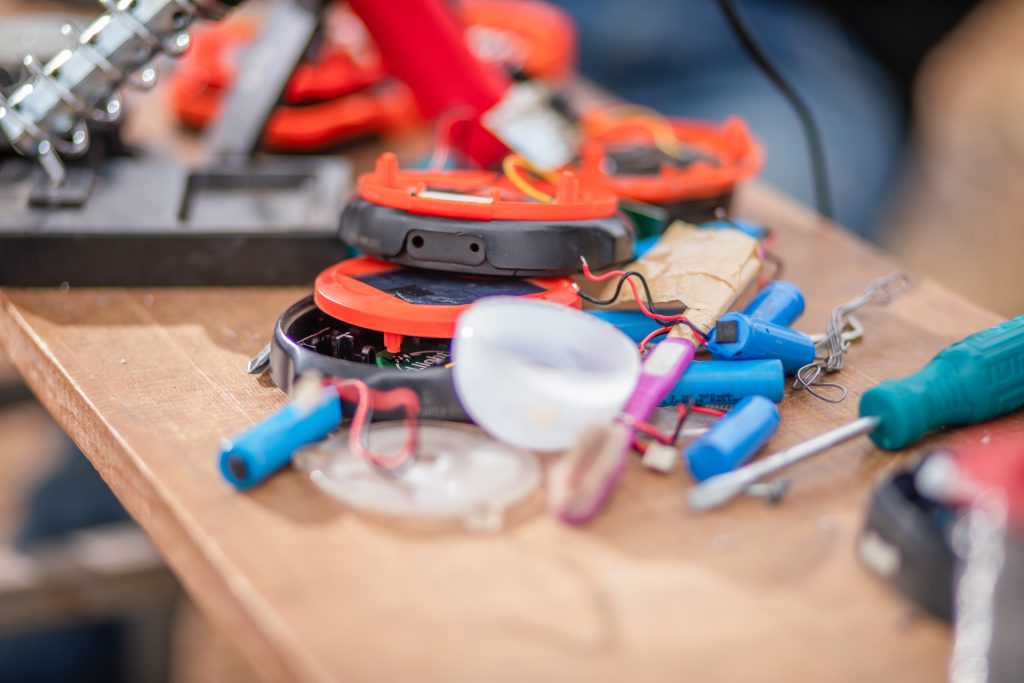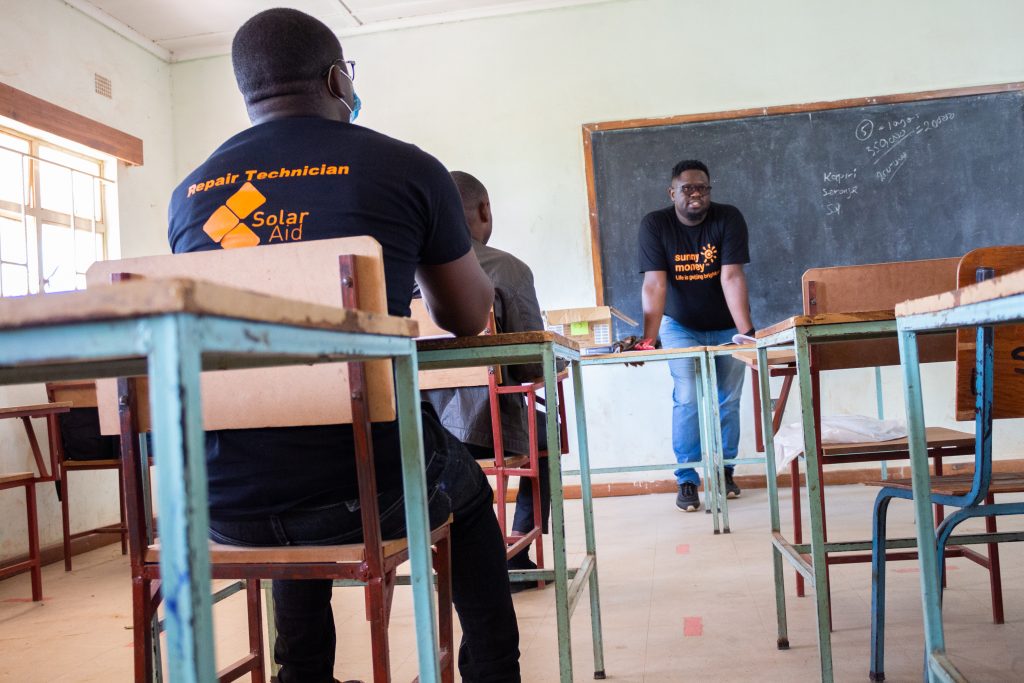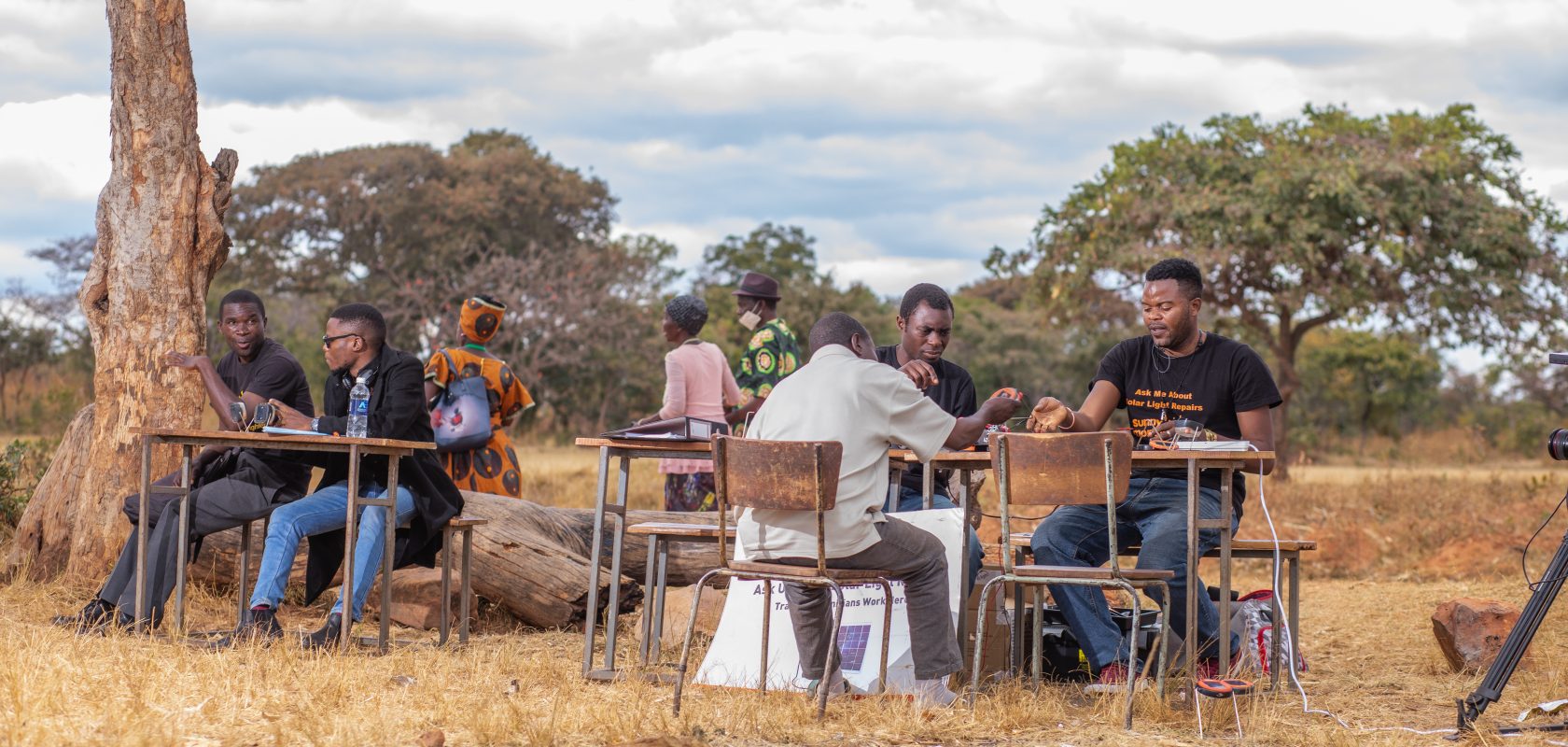“Initiatives and projects like the ones being implemented by SolarAid not only see non-functioning electronic products like solar lights brought back to life, but also contribute to sustainable management of electronic waste and provide business opportunities to local technicians.”
According to the Global E-Waste Monitor 2020 report, the global quantity of E-Waste is increasing at an alarming rate of almost 2 million metric tons per year. In 2019 alone, approximately 53.6 million metric tons (Mt) of E-Waste (excluding PV panels) was generated globally, of which Africa stood for 2.9 Mt. It is estimated that the amount of E-Waste generated globally will exceed 74 million metric tons by 2030.
SolarAid in Zambia has over 13 years of experience of solar lighting. Having sold over 370,000 small solar lights through its social enterprise SunnyMoney, especially in hard-to-reach, off-grid communities, they are taking a cognitive step; showing concern about what happens to these lights once they stop working.

Opened lamp, Muchinka Primary School, Serenje, Central Province
In 2020, SolarAid launched a solar light take-back scheme, as well as a repair mobile app to facilitate diagnosis and repair of solar lights by technicians in rural areas. This project has evolved and is now focussed on helping contribute to the appropriate management of E-Waste through repairs and training of more Repair Technicians.
Most recently, SolarAid in Zambia has been working on a solar light repair pilot named Solar Saver: Second-generation lights project funded by Deutsch Gesellschaft für Internationale Zusammenarbeit (GIZ). The project aims to extend the life of small solar lights through better maintenance and repair for low-income Zambians, thereby combating the growing E-Waste problem.
Fred Mwale, SolarAid Zambia’s E-waste Programme Manager has been leading the project which is currently being rolled out by setting up repair shops and training more technicians in rural areas.
“I have always been passionate about social development and I like tech equipment. Working on this project has given me a new perspective and made me more cautious of how I manage my electronic equipment and waste; I try to work out what I already have before I can make a purchase decision for new equipment,” said Fred.

Fred Mwale, SolarAid Zambia Programme Manager. Photo: SolarAid.
Under the project, the first and second phase of repair days in Serenje, Kapiri-Mposhi and Solwezi in rural Central and North-West Zambia have been held. One of the Repair Technicians trained by SunnyMoney, Brian Nongo, described the first day of the repair days in Serenje as a success, adding that it presents a good opportunity to both customers and him as a technician.
Mwitwa Bwalya, one of Brian’s customers said, “I just want to thank SolarAid for bringing this repair program closer to us… I am happy, at least our lights which we never thought would work again, will now be coming back to life.”

Repair Technician Brian Nongo and his assistant Edson Mwelwa fixing a lamp, Muchinka Primary School, Serenje, Central Province
For Fred, it is the impact on people like Mwitwa that motivates him, “Such stories keep me going. Because I have interacted with rural communities before, I am motivated by foreseeing the impact such work would have in the future. I feel the work that I do is very much personal and professional, so I cannot separate my motivation from the two.”
In the current rate at which global E-Waste is increasing, as stated in the Global E-Waste Monitor 2020, it will be a large contributor to the adverse effects of climate change. Fred explains why solar light repair work is vital in combating E-Waste and climate change.
“Climate change is no longer a concept, it’s now here and we are living with it. Thus, the work we are doing…. however small it may seem, is helping combat the improper disposal of e-waste into the environment but at the same time creating livelihood opportunities to the technicians involved.
I believe that with concerted efforts, where companies dealing with electronic products are at the forefront of creating solutions, we can help reduce e-waste and protect the environment; it is just about responsibility.”

The hope is that by addressing the issue of E-Waste and proactively working on finding solutions, in the long run, it will contribute to the achievement of SDGs 7 and 13 which speak to urgent action to combat climate change with its impacts and ensuring access to affordable, reliable, sustainable and clean energy for all, respectively.
_____
